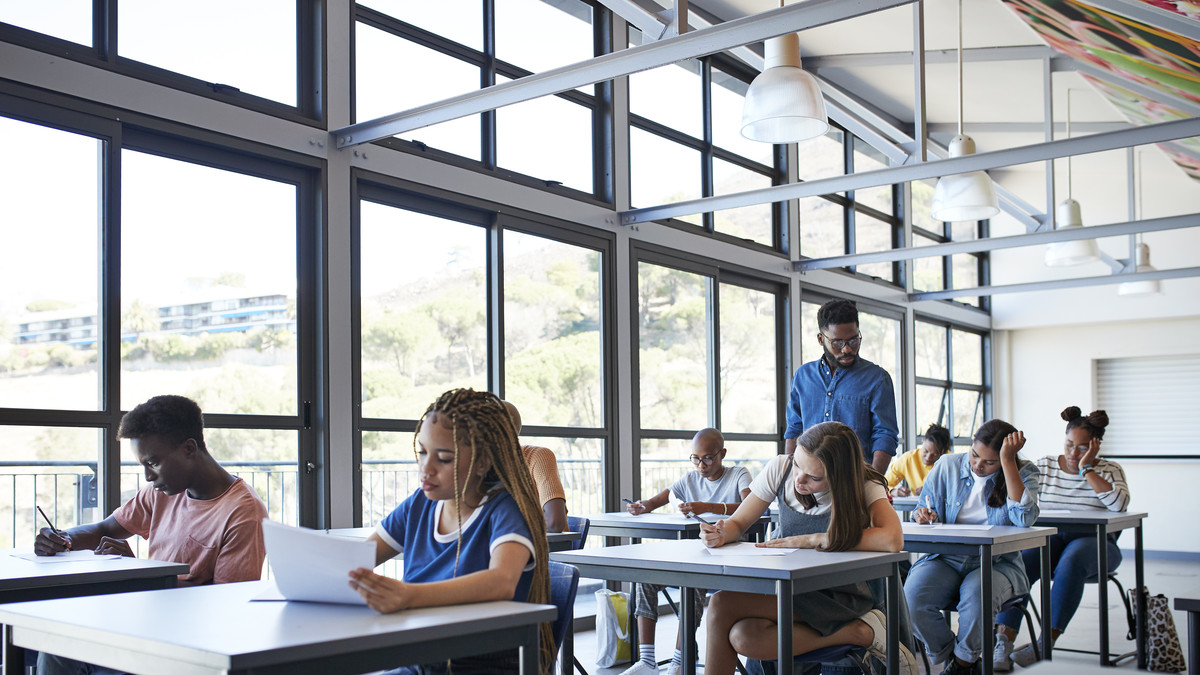As more students struggle with depression, anxiety, and stress more than three years into the COVID-19 pandemic, schools are prioritizing mental health support. But as schools make investments in counselors and social-emotional learning, small improvements to the physical environment can also make a difference.
Claire Latané, a landscape architecture and environmental design professor at Cal Poly Pomona, has dedicated her career to helping school districts design buildings with a focus on student mental health and well-being.
In 2021, Latané published her book Schools That Heal: Design with Mental Health in Mind, which provides a comprehensive look at how schools can improve their environments to support student well-being.
“The school environment is so often ignored in terms of how it makes students and teachers and the community feel,” Latané said in an interview with Education Week. “For the last 40 years, they’ve really been designed to look like and feel like prisons, often by the same architects that design prisons.”
Studies have shown that views of nature, outdoor spaces, and places to gather can improve mental health and well-being. Here are five tips schools can use to transform their buildings into more positive environments. Yes, some apply to the design of new or renovated spaces, but schools can incorporate others without undertaking new construction.
Windows
Spaces with lots of windows and ample light have a positive impact on student and staff well-being, particularly if the windows capture a view of nature.
A school that supports mental health “really takes advantage of natural ventilation and sunlight but also provides big windows so that students, teachers, and staff can see trees and gardens,” Latané said.
Outdoor spaces
Students are often happier when they have access to nature. That’s why outdoor spaces can be a great way to improve students’ mental health and well-being.
Although it may seem like school yards where teachers can have a view of every student make the most sense, wide open spaces actually correlate with more disorderly conduct among students and crime, Latané said.
“It’s the smaller spaces and more variety of spaces that correlate with better pro-social behavior, less bullying, and less crime,” Latané said. “Sometimes we need a small space to go away from other people and restore our sense of calm.”
Cozy common areas
Natural materials, soft fabrics, and comfortable seating all help students feel calmer in the school environment. Enhancing a space’s sense of calm can be as simple as adding a few couches to common areas or decorating classrooms with curtains, soft lighting, and varied places to sit.
“Often, we don’t have the budget, we don’t have the time, but there are some small things you can do,” Latané said. “Starting with really looking at the school and each classroom and figuring out how to make them feel homier.”
Classroom pets
Pets, such as goldfish, hamsters, or even visiting dogs, are a great way to help students feel happier and more connected to the school environment.
Teachers who can’t have classroom pets can add plants to the classroom. The goal is to bring life into the room and help students feel connected to the environment around them, Latané said.
Quiet zones
Loud noises, such as HVAC, street construction, or alarms, can be distracting and potentially trigger stress or trauma.
Schools can help offset some of those noises by giving students access to quiet spaces where they can relax and restore their sense of calm, Latané said.
“Making sure spaces are quiet and students aren’t interrupted by loud, jarring, or irritating noise is really important, especially for students and teachers experiencing or recovering from trauma,” she said.
This article is written by Libby Stanford & Laura Baker from Education Week, Bethesda, Md. and was legally licensed via the Tribune Content Agency through the Industry Dive Content Marketplace. Please direct all licensing questions to legal@industrydive.com.
